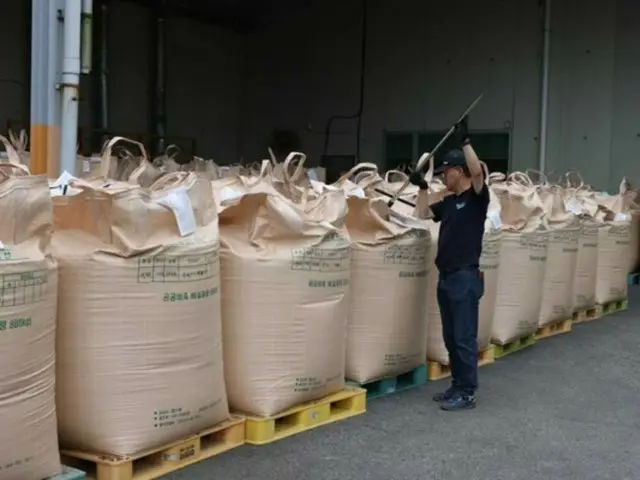The Ministry of Agriculture, Food and Rural Affairs announced at a high-level party-government meeting on the 25th that it will implement measures to stabilize rice prices and stabilize the supply and demand of Korean beef.
In order to prevent rice prices from falling further ahead of the harvest season, the ministry will purchase 50,000 tons of privately produced rice from last year's stockpile.
The South Korean government purchased 400,000 tons of rice for public stockpiles last year, but in addition to this, it purchased a total of 150,000 tons in three installments in November last year, February and June this year.
However, as the price of rice in the producing area has been declining, dropping to 44,435 won per 20 kilograms on the 15th of this month, the government plans to purchase an additional 50,000 tons.
The government also announced a policy to expand the Strategic Crops Direct Payment System, which provides subsidies to farmers who grow beans and powdered rice instead of rice, and to reduce the area of land used for rice cultivation.
In addition, the government will announce measures to stabilize supply and demand during the harvest season in the middle of next month, to prevent farmers and distributors from feeling anxious about the expected excess supply and demand. If necessary, rice will be used for feed before the harvest season.
Other plans include revitalizing the rice processing industry and diversifying rice varieties, while encouraging local producers and distributors (RPCs) to streamline their operations.
The ministry will also announce mid- to long-term development plans for the Korean beef industry next month to fundamentally resolve concerns about the supply and demand of Korean beef.
The plan also includes measures to stabilize supply and demand in advance, taking into account the characteristics of Korean beef breeding, and to reorganize the production system. This is to support Korean beef farmers who are facing financial difficulties due to the drop in wholesale prices of Korean beef and the increase in production costs.
The wholesale price of Korean beef in June was 16,715 won per kilogram, down 21.1 percent from the average year. Meanwhile, the price of meat feed was 578 won per kilogram last year, up 1.2 percent from the average year.
The ministry will also implement measures to stimulate consumption in order to stabilize Korean beef prices. It will also hold a mid-autumn celebration event (Chuseok) together with the National Agricultural Cooperative Association, the National Korean Beef Association, and the Korean Beef Independent Fund.
During the busy Korean holiday season, the company will sell Korean beef gift sets at a discount of more than 30 percent and will increase the amount of practical sets priced under 100,000 won by about 9 percent compared to last year.
In addition, a discount of up to 50% on Korean beef will continue until the end of the year.
To help Korean beef farmers reduce production costs, the government will consult with agricultural cooperatives to continuously lower feed prices and extend the repayment deadline for feed purchase funds from next year to 2026.
We will also continue to provide support for low-interest funds at 1-2% for business stabilization, such as agricultural business revitalization funds and livestock business funds.
2024/08/26 06:41 KST
Copyrights(C) Herald wowkorea.jp 104

